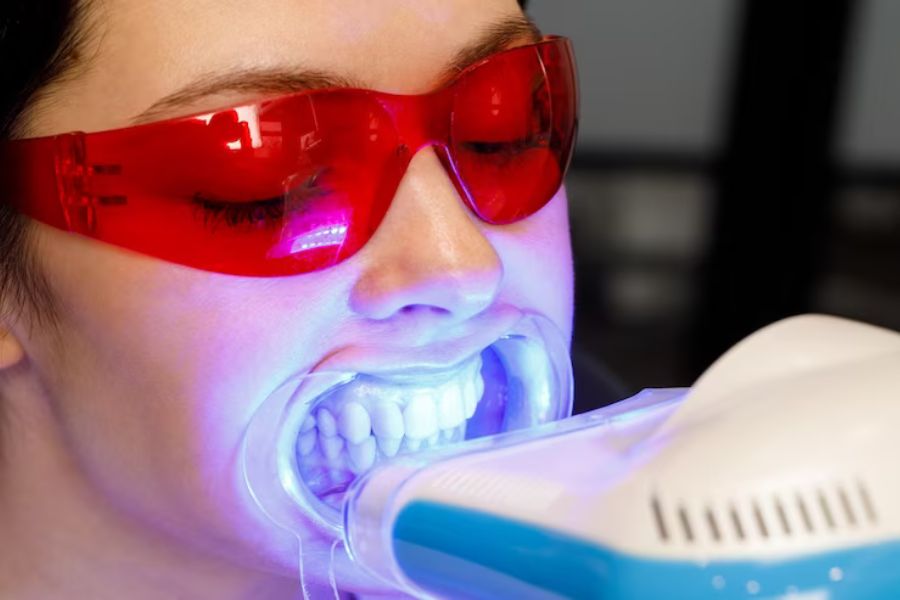What Does the Process Involve?
The dentist starts by applying a protective substance to the gums, followed by a whitening gel containing a high concentration of hydrogen peroxide onto the teeth. The gel is then activated with a laser that accelerates the bleaching process. It usually takes around an hour, and significant whitening can be achieved in a single session (Colgate).
The Benefits
Laser teeth whitening offers several advantages. It provides quick results – often visible immediately after treatment, and it’s performed by dental professionals, ensuring safety and efficiency. Moreover, it’s more effective on certain stains that may not respond well to over-the-counter whitening products (WebMD).
The Considerations
On the other side of the coin, laser teeth whitening can be more expensive than other whitening options. Moreover, some people may experience tooth sensitivity or gum irritation after the procedure, although these symptoms usually resolve within a few days (American Dental Association).
Comparing laser teeth whitening to traditional methods such as whitening strips or trays can help you evaluate the best fit for your needs and lifestyle.
Efficiency and Time Commitment
While traditional methods can take weeks to show results, laser teeth whitening often provides significant improvement in a single session. However, the tradeoff is the time commitment, as laser treatment requires a visit to the dental office and an hour for the procedure itself (Healthline).

